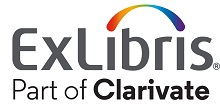A Data-Driven Approach to Optimizing the Academic Library Experience
Understanding how students use and reuse library resources and services is critical for academic libraries. Students make up the bulk of library end-users; they determine whether and how collections are used, how library spaces are used and whether services provide value.


Findings from Clarivate 2023 student research projects
Understanding students through data
Understanding how students use and reuse library resources and services is critical for academic libraries. Students make up the bulk of library end-users; they determine whether and how collections are used, how library spaces are used and whether services provide value.
While many libraries can provide anecdotal evidence to show how they support their student users, librarians often lack hard data to:
- Understand real student needs that the library can support
- Adapt to student behaviors and trends as they unfold
- Demonstrate to university leadership how students are already using library services
Filling in the research gaps
With this data gap in mind, the Clarivate UX Team undertook several research initiatives with academic libraries in 2023, primarily in North America.
The following report shares key findings from this research that we believe will give librarians further context into the lived experiences of their students, so they can craft library experiences that better serve student users. Throughout the report we will also suggest ways for libraries to assess their student experience and share examples of how librarians within the Ex Libris community are paving the way for more student-centric ways of working.

Students face increasing headwinds, especially in the post-pandemic landscape
Survey background: From December 2023 to January 2024, we interviewed 15 faculty instructors, 12 librarians, and 12 students to see how the dramatic changes brought about by the pandemic have changed their lives. We also collected 54 survey responses on this topic from faculty instructors and 140 responses from students. Interview participants were largely from the United States, with one instructor from the UK and 4 students from India.
External factors impacting education
Students don’t exist in a vacuum – they bring their whole selves to university, and what they face in their day-to-day has a significant impact on how they learn.
- Financial Pressures: More students are working longer hours alongside their studies, leading to less engagement, more absences, more stress, and less time overall for schoolwork. Students echo this observation from faculty/librarians.
o How is this impacting your student body? According to the National Center for Education Statistics, in 2020 the percentage of full-time undergraduate students who were employed was 40%, while the percentage of part-time undergraduate students who were employed was 74%.
o Every dollar counts.A 2023 Alterline report, sponsored by Ex Libris, found that university students see a direct correlation between course resources costs and student success: “1 in 5 students have opted to not enroll in a course/module unit due to the cost of course material being too high.”
- Mental Health Issues: Despite increased support services, many instructors and librarians see a decline in student mental health since the pandemic, and they believe this has a negative effect on their coursework.
o How is this impacting your student body? One study, published in June 2023 in the British Journal of Educational Studies , found that “the COVID-19 pandemic has caused a significant, negative impact on the well-being of British university students”.
Student attitudes and performance
Many libraries are partnering with teaching and learning professionals to offer students streamlined and affordable access to classroom resources. However, within the classroom itself, faculty are seeing changed behaviors since the pandemic. Each of these trends is intertwined and is related to the previously mentioned financial and mental health challenges. And, while many librarians and faculty mentioned the issues below, it’s important to note that we can’t paint all students with a broad brush. The extent to which these trends are present at your institution may depend on the type of institution, program, and student background.
- Engagement issues:Instructors report increased absenteeism and distraction during class, as well as decreased enthusiasm for new ideas and rigorous learning. Online lectures, while offering more convenience for students, lead to lower attendance and potentially weaker performance.
- Transactional attitude towards education: Many students are very career-oriented and have an increasingly transactional approach to higher education. They are there for the degree and any investment beyond that isn’t guaranteed.
- Less confidence: Some students show reduced interpersonal skills and confidence, possibly due to lack of work and travel experience (perhaps a knock-on effect of the pandemic years). They both require more guidance and are less inclined to seek help and may not even realize help is available.
- Entitlement to learning: Students expect knowledge to be delivered by instructors and have a greater expectation for structured learning. This can lead to less rigorous work. Students also have higher-grade expectations.
- Academic performance decline: Students are less prepared, particularly in writing and math skills, leading to more remedial classes and lower entry standards. This is seen across the student body, especially in new undergraduates.
Online learning and technical skills
The term “digital natives” may give the impression that Gen Z students should be capable of handling any tech you throw at them. Though their digital expectations are higher post-pandemic, not all students have the digital competencies needed for library discovery.
- Increased usage of devices in class: Laptops, tablets, and smartphones have become more heavily used in face-to-face classes for note-taking and other class-related activities. Students are better at collaborating online than before. As one librarian who participated in the survey noted, “There’s no such thing as a fully in-person class anymore.”
- Expectation of online availability: Some instructors report higher demand for on-demand online office hours. Students expect lectures to be recorded, which is helpful not only if they miss the lecture but also as a reference for later study.
- Technical skills: Despite proficiency with social media, they find using databases and research tools challenging. Students lack effective research skills and struggle with formulating search phrases. There’s a need for more training and teaching in this area.

Students aren’t necessarily stepping foot into the library
Once students enter the library, librarians can catch their attention and promote library initiatives with posters, exhibits, brochures or giveaways. But what about the students that aren’t visiting the library?
Among the 13 undergraduate students we conducted one-on-one interviews with, many reported barely using the library, or only visiting the library during peak exam season. In their own words:
- “I barely use the library”
· “I dislike being on campus so I tend to study from home
- “The library is a 10-min walk in another direction”
- “I don’t frequently visit the library building”
- “I usually study at home”
This is in keeping with our survey, in which 20% of the students reported never/rarely using library services.
“I’m sure the library offers a lot of things I don’t use”
Libraries that want to reach this 20% of students have options.
- Stronger collaboration with external university stakeholders, including marcom, teaching and learning, and student unions to make students more aware of library resources and services
- Assess the opportunities for communicating via legacy and new channels, as well as their limits, to make the best use of your voice.
o Email fatigue is real. Though email is far from dead, university students are often inundated with emails from across the institution, and library emails can get missed or ignored. “We know students are getting fed up with their email, and don’t always check their inbox,” shares Rupert Frankum, Digital Experience and Platforms Manager at the University of Plymouth. University College London is seeing similar signs of email fatigue: in 2023, they had an average email open rate of 5%.
- Bringing the library to students.Our survey found that approximately 70% of undergraduate students live off campus. If you’re holding a career readiness event at the library, offer a virtual link to attend – so more students can fit the event into their study/work/life balance and benefit from it.
- Making the library’s digital experience more inviting. Getting students' attention isn’t easy – but once you’ve got their attention, a streamlined digital user experience can help keep them engaged. In our one-on-one interviews, students shared feedback such as “Library websites tend to be cluttered” and “A lot of resources we have are scattered across different websites.” Students use different devices for different purposes but still expect to feel like they are navigating one single environment – creating a coherent digital experience can make it easier for students that aren’t coming to the library to still connect with library services.
Next: Librarians discuss initiatives to support digital-native users
Students are juggling more with their studies, and research shows their mental health is declining. It’s no wonder their expectations of higher education are more demanding. With vast services and connections to virtually every student and faculty member, libraries are uniquely positioned to offer their support.
In May 2024, librarians gathered for a panel discussion to delve into these findings. They shared their efforts in engaging students through various library initiatives and the impacts of these changes.
Watch the webinar on-demand here.
Sources:
https://www.tandfonline.com/doi/full/10.1080/00071005.2023.2215857
https://exlibrisgroup.com/wp-content/uploads/Case-Study-University-of-Plymouth_2023.pdf
https://exlibrisgroup.com/wp-content/uploads/Case-Study-University-College-London.pdf
SPONSORED BY
RELATED
ALREADY A SUBSCRIBER? LOG IN
We are currently offering this content for free. Sign up now to activate your personal profile, where you can save articles for future viewing










Add Comment :-
Comment Policy:
Comment should not be empty !!!